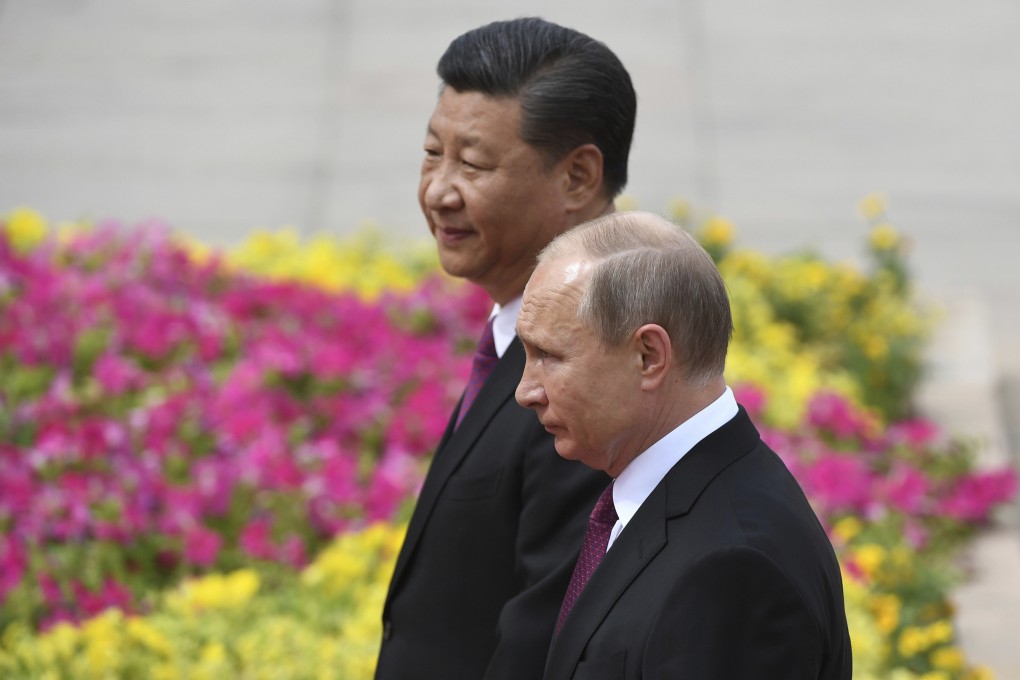Advertisement
Xi-Putin summit yields united stand on Taiwan and Nato
- China and Russia voice opposition to expansion of US-led security alliance in Europe
- Both countries take joint aim at Aukus and Taiwanese independence in any form
Reading Time:4 minutes
Why you can trust SCMP
99+

China and Russia moved a step closer to forming a quasi-alliance after a summit on Friday ended in a coordinated stand on Taiwan and Nato – and by default Ukrainian membership of the US-led alliance.
In a lengthy joint statement after Chinese President Xi Jinping met his Russian counterpart Vladimir Putin on the sidelines of the Beijing Winter Olympics, the two countries said some nations continued to push unilateral approaches in international relations and interference in the internal affairs of others.
The statement said China and Russia were concerned that the formation of the Aukus security alliance – a deal in which the US and Britain will help Australia build a nuclear-powered submarine fleet – would increase the risk of an arms race in the region.
Advertisement
It said the two countries agreed to take steps to reduce the risk of nuclear war and any armed conflict between countries with military nuclear potential.
Without referring to Ukraine, Russia and China said they also opposed expansion of Nato – a key Russian concern in the crisis with Ukraine, describing it as a cold war approach to international affairs. Russia also reaffirmed that Taiwan was an integral part of China and it opposed Taiwanese independence in any form.
Advertisement
No state should ensure its security “at the expense of the security of other states”, the statement said.
Advertisement
Select Voice
Choose your listening speed
Get through articles 2x faster
1.25x
250 WPM
Slow
Average
Fast
1.25x